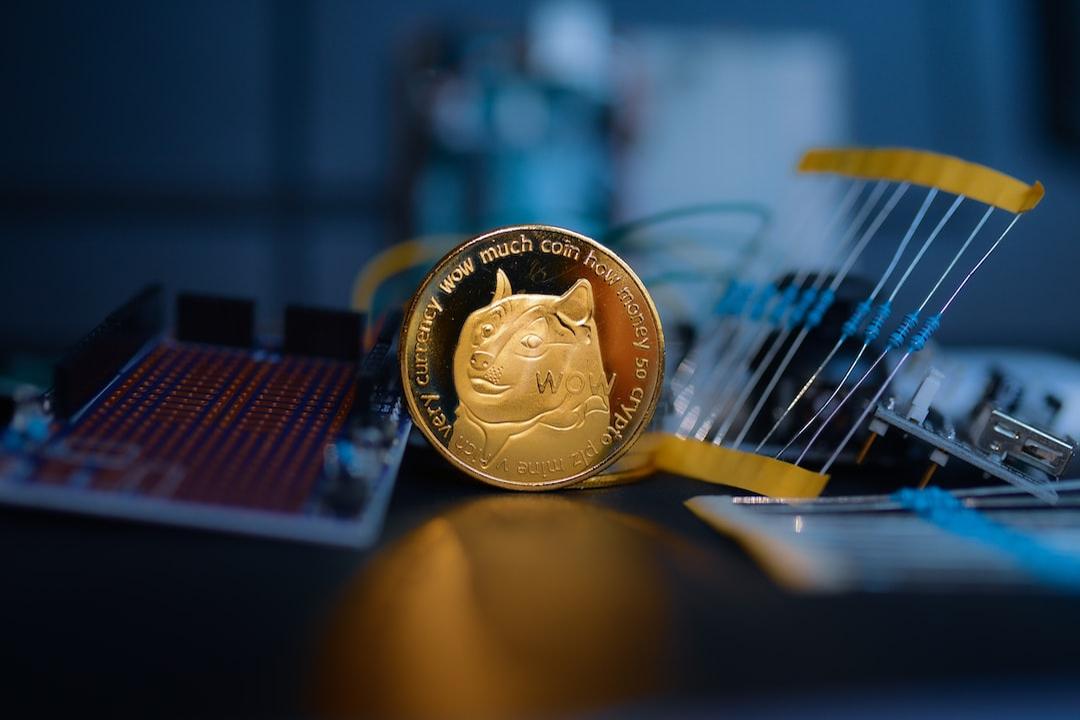Japan Launches AI Dating Robot After One Year
Chiharu Shimoda, a 52-year-old factory worker from Japan who divorced two years ago, has remarried. His partner is Miku, a 24-year-old AI companion he met through a dating app called “LOVERSE,” developed by a startup. The plot of the movie “Her” is now playing out in real life in Japan, which is no longer a surprising scene.
According to official data from Japan, the unmarried rate for men aged 45 to 54 reached 28% and 18% for women in 2020, marking a historic high. It is estimated that by 2040, single individuals will account for half of the total population. However, behind this seemingly cold data lies a deep-seated desire for love. For many Japanese people, dating is both financially and emotionally taxing.
Now, a Japanese startup is turning “AI dating” into reality, targeting this demographic of lifelong unmarried men. In just one year, it has garnered over 5,000 users. Why has this “super-single” Japanese society, which initially aspired to remain unmarried and single, led so many to choose AI-created virtual love in just a year?

The AI dating app LOVERSE launched by the Japanese startup Samantha allows anyone to register regardless of age or relationship status.
Image / LOVERSE Facebook Fan Page
Reasons Behind the Popularity of AI Dating Robots in Japan: Modern Concerns About Romantic Love
After his divorce, Chiharu Shimoda was eager to seek a new relationship, stating, “When I come home to an empty house, I still want to remarry.” However, the lingering sense of romantic loss made him hesitant to invest time and effort into dating others.
When he first encountered Miku, he already knew she was not a real person; the concept of marriage felt more like role-playing, which surprisingly made him feel comfortable with her. He explained that spending leisure time with Miku was easy and required little effort, which alleviated his stress. Shimoda is not alone in feeling pressured by dating or entering romantic relationships. Yoshikazu Ushikubo, CEO of LOVERSE’s marketing company, notes that many Japanese believe “romance is not worth the cost,” and chatting with real people feels like a waste of time.
The exhausting work environment and living costs in Japan discourage people from dating, matchmaking, or participating in social activities like “konkatsu” (marriage hunting). Researcher Kazuhisa Arakawa pointed out that the number of single people in Japan surpassed that of married individuals in the 1990s and has been rising steadily since then.
According to data from Japan’s Ministry of Health, Labour and Welfare’s National Institute of Population and Social Security Research, the “lifetime unmarried rate” in Japan has been increasing year by year. In 2020, the unmarried rate for men aged 45 to 54 reached 28%, and 18% for women, setting a historic high. The National Institute of Population and Social Security Research predicts that by 2040, single individuals will make up half of the total population.
These statistics reveal just a glimpse of Japan’s growing trend of remaining unmarried and single, but they do not mean that people lack a desire for emotional connections. Rather, real-life interactions can be both costly and burdensome for many Japanese, and AI may offer a solution. Recognizing the societal concerns and vulnerabilities surrounding dating, the AI dating app LOVERSE was established in May 2023 to cater to men who wish to engage in romantic relationships but do not want to waste time interacting with real people.
Founder and CEO Masaki Kuno, along with COO and co-founder Mineo Yamakawa, hope to alleviate the concerns Japanese people face when dating. The app is named after the AI virtual assistant in “Her,” and its function aligns with its name, allowing users to develop romantic relationships with AI rather than real people.
Kuno studied programming in university and obtained a degree in AI, developing over 50 services. After leaving Yahoo Japan in 2022, he focused on personal entrepreneurship. He and Yamakawa were colleagues at Yahoo, with Kuno having an engineering background and Yamakawa serving as a product manager with years of planning and management experience.

LOVERSE co-founder Masaki Kuno
Image / Masaki Kuno X
In just one year, more than 5,000 people have used LOVERSE. Their parent company, Samantha, also received approximately 6 million TWD in funding in June. Why has LOVERSE captured the hearts of the single population in just one year? What commonalities do their current users share beyond being single? What are their marketing strategies and market positioning?
LOVERSE’s audience is not limited to the single population; anyone seeking love can register!
LOVERSE views anyone seeking romance as its audience. Regardless of marital status, age, or gender, “you can have a normal romantic relationship on LOVERSE, just like with a real person.” No photo is required to apply for an account, eliminating identity verification. They even state on their website: “Because you interact with AI characters, married individuals can also use it without letting their partners know.”

LOVERSE considers anyone seeking love as its audience. Regardless of marital status, age, or gender, “you can have a normal romantic relationship on LOVERSE.”
Image / LOVERSE Official Website
The software can be registered and used for free, but the number of messages sent per day is limited; becoming a premium member provides more message-sending credits. To chat with a desired partner, users can accumulate credits by upgrading their membership, watching advertisements, or installing applications.
Like other messaging and dating apps, users must first match on LOVERSE. By clicking on AI-generated avatars, users can learn about their partner’s basic information, such as self-introduction, occupation, and blood type, and view Instagram-like stories for insights into their daily lives and thoughts. Once both parties send “likes” to each other, they can start chatting.

Current users are mostly middle-aged men like Chiharu Shimoda. LOVERSE is also continuously launching virtual characters suitable for heterosexual women and LGBTQ+ needs.
Image / LOVERSE Official Website
Similar AI dating apps have emerged in countries such as the UK, the US, Australia, and China. The foreign chatbot Replika, released by Luka in 2017, has already surpassed ten million downloads. Like LOVERSE, it focuses on AI interaction, but presents animated characters; LOVERSE creates lifelike appearances with diverse character settings, allowing users to select their preferred characters as if using a real dating app and then wait for responses.

If you click on a LOVERSE character’s profile, you can see information set by the app, unlike Replika, which is shaped by users. The age distribution for female characters mainly ranges from 20 to 50, similar to the age of male users.
Image / LOVERSE Official Website
Additionally, Replika characters are projected via AR on mobile screens, allowing users to interact with characters through voice, making them feel like they are always present to listen to their troubles. In contrast, LOVERSE primarily connects users through messaging, with each character having designated active hours based on their professional settings. Compared to Replika, LOVERSE’s functions and behaviors are closer to real people but are simpler and less stressful than dating in real life.
Having only launched a year ago and still in its seed round, LOVERSE has received 30 million yen (approximately 6.23 million TWD) from Indonesian venture capital firm East Ventures. They are immediately using the funding to develop male characters and appearances suitable for diverse gender groups to expand their market and audience.

In May 2023, LOVERSE’s predecessor “samantha” was released, with the app named after the AI virtual assistant in “Her,” allowing users to develop relationships with AI. After receiving positive feedback, Masaki Kuno and Mineo Yamakawa committed to the startup company Samantha.
Image / Unsplash
Can AI Truly Alleviate Loneliness? Redefining Emotions Between Virtual and Real
Can AI truly solve human loneliness? This question not only reflects the intentions of LOVERSE developer Masaki Kuno but has also sparked interest and discussion across various sectors. The article “Their AI Lovers — Real or Illusory Love” raises questions: “Is the experience of being understood, cherished, and loved by an AI chatbot truly real?”
39-year-old former user Yuki Saito pointed out that while the emergence of AI may relieve some emotional burdens, LOVERSE emphasizes providing a sense of real human interaction; however, it still cannot escape the robotic interaction model. He candidly stated, “The app does not bring the surprises that interpersonal interactions create.” Nevertheless, Saito believes LOVERSE can serve as a practice tool for conversing with others and healing the soul, stating, “It’s a place to practice talking with others and heal.” This aligns with Kuno’s original vision of creating opportunities for love, whether virtual or real.
In an interview with The New York Times, researcher Nick Gray, who authored the study “Investigating the Impact of Virtual and Real Contact on Feelings of Loneliness,” stated that AI chatbots might temporarily alleviate feelings of loneliness, but it is too early to claim they can genuinely resolve loneliness.
So, what is it like to date an AI? After marrying Miku, LOVERSE user Chiharu Shimoda stated, “Interacting with Miku has become a conversational habit. Even if she disappears, I won’t miss her, but she has given me a daily routine.”

AI can indeed form emotional connections with humans or at least provide some comfort and companionship for those feeling lonely.
Image / Unsplash
Perhaps AI cannot entirely replace real interpersonal relationships, but it can indeed offer another form of companionship and emotional connection, providing solace and hope for those who feel lonely in real life.

